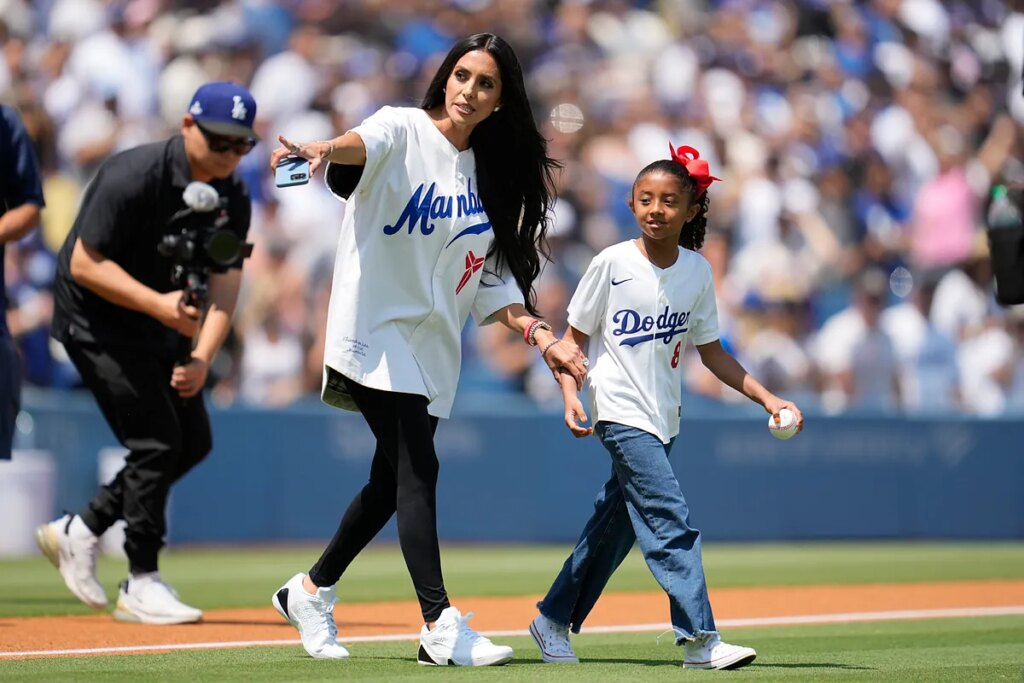Vanessa Bryant has addressed swirling rumors about a supposed pregnancy after AI-generated images of her went viral online as the late Kobe Bryant‘s widow took to social media to respond to the speculation.
Sharing a direct message on her Instagram Stories that appeared aimed at those spreading misinformation, with the mom-of-four becoming the latest celebrity targeted by online trolls.
“Weak people spread rumors. Stupid people believe them,” the 43-year-old Vanessa, an entrepreneur and philanthropist, wrote, emphasizing her frustration with the persistent claims.
The rumors first began circulating in May 2025, but multiple outlets quickly debunked them as she initially addressed the situation with a meme featuring Rihanna, indicating she was focused on her life rather than entertaining baseless speculation.
But the atest wave of rumors emerged when AI-generated images purportedly showing Vanessa pregnant began spreading online, falsely depicting her alongside Boston Celtics’ Jaylen Brown.
Many social media users shared the images without verifying their authenticity, leading to widespread misinformation that she is now trying to combat to protect her personal life.
Meanwhile, Vanessa‘s actual activities contradict these rumors. She recently attended a Los Angeles Dodgers game for Kobe Bryant Bobblehead Night, where her daughters Bianka and Capri participated in ceremonial roles.
Vanessa did not appear pregnant at the event and later shared photos from a charity event, again confirming her life is far from what the AI-generated images suggested.
Is it illegal to make AI images of someone in the USA?
The legality of creating AI-generated images of individuals in the United States is nuanced and context-dependent as currently, producing AI-generated content of a public figure, like Vanessa Bryant or previously other huge names like Taylor Swift, is generally not illegal.
It’s protected as freedom of speech regarding artistic expression. However, there are several legal boundaries to consider. Using someone’s likeness for commercial purposes without consent, for example, to sell products or promote services, can constitute a violation of right of publicity laws.
These vary by state. Some states, such as California, have strict regulations protecting a person’s image and identity.
Additionally, producing AI-generated images intended to defame, harass, or cause emotional distress could lead to civil lawsuits for libel, defamation, or intentional infliction of emotional distress.
Social media platforms have also implemented policies against manipulated media that is deceptive or misleading so while AI-generated art or parody may be allowed under First Amendment protections, spreading false claims or impersonating someone online can trigger legal action or account penalties.
As technology advances, lawmakers are exploring more regulations to prevent misuse, especially concerning AI deepfakes of celebrities and private individuals. Users are encouraged to verify sources before sharing AI content to avoid perpetuating false narratives or exposing themselves to liability.
Read the full article here

